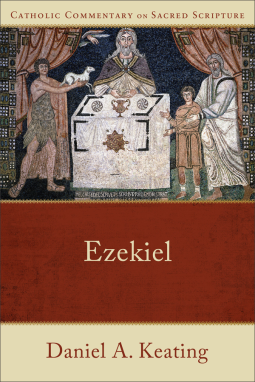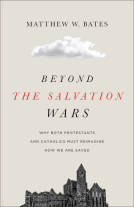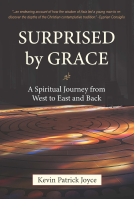
Ezekiel
by Daniel A. Keating
This title was previously available on NetGalley and is now archived.
Send NetGalley books directly to your Kindle or Kindle app
1
To read on a Kindle or Kindle app, please add kindle@netgalley.com as an approved email address to receive files in your Amazon account. Click here for step-by-step instructions.
2
Also find your Kindle email address within your Amazon account, and enter it here.
Pub Date 20 Aug 2024 | Archive Date 3 Sep 2024
Baker Academic & Brazos Press | Baker Academic
Talking about this book? Use #Ezekiel #NetGalley. More hashtag tips!
Description
The seventeen New Testament volumes in the Catholic Commentary on Sacred Scripture series have been widely acclaimed. The series now expands to include readable Old Testament commentaries that integrate the best of contemporary biblical scholarship with the traditional understanding of the Old Testament as prophesying and prefiguring Christ.
Commentary features include:
● Biblical text from the New American Bible, Revised Edition (NABRE)
● References to the Catechism, the Lectionary, and related biblical texts
● Quotations from Church documents, Church Fathers, and saints
● Reflection and application sections for daily Christian living
● Suggested resources and an index of pastoral subjects
Written from a standpoint of faith in the Holy Spirit's inspiration of Scripture, CCSS Old Testament commentaries are designed for preaching, teaching, and applying Scripture to Christian life today. Accessibly written yet substantive, they are packed with features that make them particularly useful to those doing ministry in Catholic parishes.
General editors for the series are Mary Healy (Sacred Heart Major Seminary), Mark Giszczak (Augustine Institute), and Peter S. Williamson (Sacred Heart Major Seminary).
Advance Praise
“Daniel Keating provides more than a reliable and readable guide to the book of Ezekiel. Through his judicious selection of biblical intertexts, early Christian interpretations, and Church traditions, he reveals and illuminates the book’s many exegetical puzzles and theological challenges as well as its significance for modern people of faith. This is a welcome addition to the Catholic Commentary on Sacred Scripture.”—William Tooman, professor of Hebrew Bible and ancient Judaism, University of St. Andrews
“Keating’s work on Ezekiel provides clarity on a challenging Old Testament prophet! The reader of his commentary will find it useful on several levels.”—Donna Petter, Gordon-Conwell Theological Seminary
Available Editions
| EDITION | Other Format |
| ISBN | 9781540965868 |
| PRICE | US$28.99 (USD) |
| PAGES | 352 |
Available on NetGalley
Featured Reviews
 Yakub T, Educator
Yakub T, Educator
Daniel Keating does a brilliant job by providing a thorough explanation on one of difficult chapter in Old Testament, Ezekiel. This is a very wonderful blessing for us as a teacher, preacher, and Christian layman who seriously want to do a Bible study.
The New Testament volumes in the Catholic Commentary on Sacred Scripture series are among the most useful, faithful, level-headed commentaries available, consequently, I am so happy to see that they are expanding the series into the Old Testament. The Book of Ezekial is one of the most puzzling, enigmatic and, at times, bizarre writings among the Old Testament Prophets. In keeping with the quality of the NT books in this series, Daniel Keating provides a sober, orthodox, sensible and faithful commentary on this prophetic writing. At the beginning, Keating delivers an excellent introduction to the structure of the writing and the literary features which help orient the reader. The commentary that follows is block by block rather than verse by verse. As part of the commentary, the author draws attention to the writings of the Church Fathers and other great teachers of Church history. Each block of commentary also makes reference to useful scriptural cross-references and the Catholic Catechism.
This commentary is useful on many levels and I recommend it fully to teachers and preachers who bring the Sacred Scriptures to others, but I also recommend it to laypeople who are looking for a reliable guide to walk them through Ezekial's dramatic visions. While intellectually substantial, this commentary does not get "bogged down" in technical or speculative issues - it is practical, applicable and encouraging. While this is part of an overtly Catholic Commentary Series, readers from other orthodox streams within the Christian Church - I am an ordained Pentecostal minister and found this commentary to be one of the most useful I have read on Ezekial.
 Conrade Y, Reviewer
Conrade Y, Reviewer
Compared to the New Testament, fewer people read the Old Testament. Those who read the Old Testament tend to avoid the prophetical books. Those who read the prophets tend to avoid the more "difficult" books. They prefer Isaiah, especially during Advent, or Jeremiah in times of lamentation. Books like Ezekiel are not as popularly read or preached on. One reason might be due to the book not referenced directly or indirectly by the New Testament. Another reason might be due to the challenges of linking the ancient book to modern relevance. This commentary combines scholarship with practical applications based on Vatican II principles. One such principle is to use historical and literary methods to discern authorial intent. Another principle is to apply the meaning within the contexts of the whole Bible, tradition, and what it means for living faith. Written for pastors, teachers, ministry workers, and laypersons, this commentary checks out many boxes. It focuses on the meaning of the text for faith and Christian living. It minimizes the use of technical terms to benefit a wider readership. Instead of a verse-by-verse methodology, the commentary treats the book on a passage-by-passage basis. With clearly marked segmentations using the RSV (Second Catholic Edition, Ignatius) as a default translation, it is easy to use the book as a reference. Each chapter begins with the complete Bible text of the passages before the commentary. Some commentaries might save space by excluding biblical texts. However, I believe that including the text in the commentary is a subtle reminder to readers to read the text before the commentary.
In the commentary, there are clear outlines right from the start. The key theme is the "Presence of the LORD." Chapters 1-33 contain judgments upon Israel and her neighbours and how the presence of God had departed from them. Chapters 34 to 48 show us the huge difference when God's Presence returns to the land. The introduction is one of the most readable sections for a Bible commentary. In simple language, readers get to learn about the authorship, the historical context, genre, literary features, theological themes, modern applications, and how the book relates to other books of the Bible. The commentary dives into the texts with bold phrases to visually emphasize key pointers in the passage. This encourages readers to pause and reflect on the meaning and relevance of the texts. This is then supplemented by insights from "Living Tradition" where we hear voices from the Ancient Church Fathers and prominent Christian leaders through the ages. The "Reflection and Application" sections boldly attempt to build a bridge between ancient and modern times. I think it is intentionally brief so that we can reflect and ponder about applications in our contexts.
My Thoughts
==============
First, this is a good commentary. It covers many aspects of what a commentary should be, like a concise outline, an informative introduction, a clear layout, and a systematic progression of thought. I particularly like the words in bold which are helpful pointers for readers to note the main points in the text. True to the purpose of the commentary series, there is frequent "Living Tradition" wisdom from the Ancient Fathers. Technical terms are used infrequently. When used, Keating offers a simple explanation. For instance, when using the literary words "analogy," "allegory," or the biblical use of the word "abomination," he explains the meaning without bogging us down in too much detail. The brief glossary is a useful reference to supplement technical terms.
Second, there are many ways in which we can use this commentary. For teachers, the outline provides a brief educational curriculum. One can focus on theological themes like the covenants, oracles, the visions, God's Presence and Nature, or the judgment and redemption narratives. For preachers, going through verse-by-verse or even chapter-by-chapter might take too long. It is best to focus on the movements (oracles) of the texts based on the targeted audiences. Like many sermons, one can get so caught up with the details that there is not enough time to talk about applications and what the text means for today. This is where the "Reflection and Application" segment comes in. For the less initiated, use the outlines presented in this commentary to kick-start the process. Along the way, we can then adapt the outlines according to the contexts of our churches and Christian communities. For laypersons, this commentary is one of the easiest to read and reference.
Finally, a word for Protestant and Evangelical readers. It will be good to be aware of the occasional references from the Apocrypha, books that are deemed non-canonical. From my reading, the references do not necessarily impact doctrine. Plus, they are also few and far between. The overall benefits of understanding the main text outweigh the occasional references. However, I would have preferred the use of the NRSV translation as a default ecumenical text instead of the RSV2CE. I suppose this being a Catholic commentary, it is the author's prerogative.
Overall, this is a useful commentary that is clear, concise, and commendable.
Daniel A. Keating (DPhil, Oxford University) is a professor of theology at Sacred Heart Major Seminary in Detroit, Michigan. He is the author or coauthor of several books, including The Adventure of Discipleship, Athanasius and His Legacy, The Nicene Creed, and two volumes in the successful Catholic Commentary on Sacred Scripture series: First and Second Peter, Jude and James, First, Second, and Third John.
Rating: 4.25 stars out of 5.
conrade
This book has been provided courtesy of Baker Academic via NetGalley without requiring a positive review. All opinions offered above are mine unless otherwise stated or implied.







